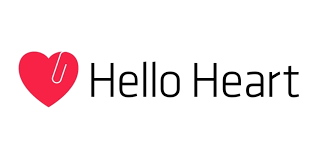MENLO PARK, Calif.– Hello Heart, the only digital therapeutics company to focus exclusively on heart disease, today announced that its digital health application for blood pressure management can achieve and maintain lower blood pressure over time, even for those most at risk for heart disease. The results, published in JAMA Network Open, a peer-reviewed journal of the American Medical Association, showed that over 84 percent of participants with stage II hypertension achieved a reduction in their systolic blood pressure, which was maintained over three years. This research is the largest multi-year study of the efficacy of a digital therapeutic in controlling hypertension.
Researchers tracked 28,189 adults with employer-sponsored health insurance who used the Hello Heart technology and program. They found that the more people engaged with the Hello Heart digital therapeutic, the more their blood pressure improved, especially amongst those with stage II, the most severe form of hypertension. Those with stage II hypertension who participated for 3 years had a mean systolic blood pressure reduction of 20.9 mmHG, more than double any other published results.
“This is the first peer-reviewed, published study reporting the long-term experience of a digital health application for blood pressure management, with a magnitude of association that is clinically meaningful,” said Alexis Beatty, MD, MAS, a cardiologist and associate professor at the University of California, San Francisco, and the lead author of the study. “The level of engagement is something I have not seen in other digital hypertension management programs. Sustained engagement and decreases in systolic blood pressure of more than 20 mmHg could reduce a person’s chances of heart attack, stroke, kidney disease, and death.”
The study found that at 12 weeks, 69.9 percent of users with stage I hypertension and 84.8 percent of users with stage II hypertension reduced their blood pressure. At the end of year one, those with stage II hypertension who reduced their blood pressure increased to 85.7 percent, and by year three, it remained high at 84.4 percent. Participants enrolled in the program at various times during the three-year period, and therefore, drop-off rates were not assessed in the study. The average reduction of blood pressure for participants with stage II hypertension was 19.2 mmHg systolic at year one and increased to 20.9 mmHg systolic by year three.
The researchers found that for the majority of users, any level of engagement with the Hello Heart program was associated with a reduction in blood pressure. Further, Hello Heart demonstrated the ability to capture hypertensive crises in men and women and timely identify potential events before they become catastrophic. The results were statistically significant even after adjusting for demographic, socioeconomic conditions, and behavioral factors.
“There is a high amount of skepticism and cynicism around hypertension management solutions because for years, there has been no effective solution, and current solutions yield low participant engagement. We’re pleased that the study demonstrated such strong clinical results that are sustained over three years for Hello Heart users,” said Maayan Cohen, CEO of Hello Heart. “It can be very uncomfortable and even scary for companies to subject their findings to a peer review. We have been helping users with their cardiac health for several years and are proud to put our clinical results through a peer-review process that validates what we already know—Hello Heart has strong, sustained clinical impact, at scale.”
Hello Heart’s connected blood pressure cuff and smartphone app empower users to self-manage their heart health and detect serious issues before they occur. Hello Heart incorporates medication adherence reminders and clinically based, personalized digital coaching to drive lifestyle change. Hello Heart is designed to maximize user engagement through behavioral science, AI-driven insights, non-medical terminology, and gamification in an easy, fun-to-use mobile application.


